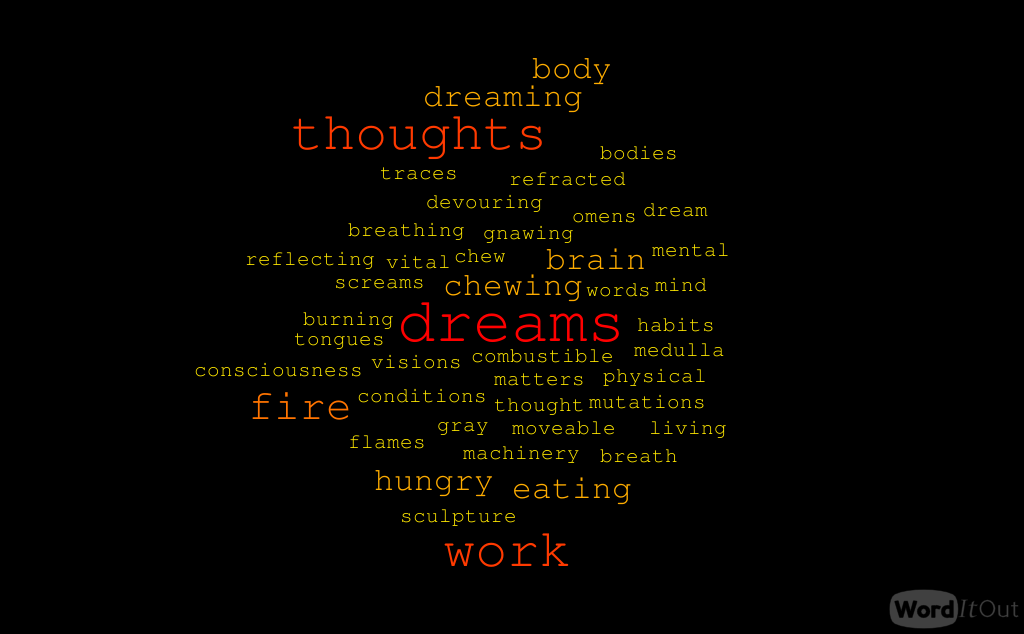chewing dreams, hungry thoughts, devouring visions…. These are just a few of the slogans or titles (or however you want to think of them as) that are used to describe every year of MXTW.
But what do they mean? And who is the one thinking them up?
Jim Hamilton, of course, is the one responsible. Jim is the founder of MXTW, was director for the first 15 years, and has since been acting as producer. The 30th year will be his last year as producer. That responsibility is being passed to Lauren Fischer, but that does not mean Jim will never again be involved.
You may have noticed that there are three components. The formula typically looks like this: ____ ____ : theatre. The two blanks are filled with a verb and noun, followed by a colon and the word theatre. In order for a slogan to be effective, either the verb or noun must control the other word. There should be a double entendre at play (ha); one or the other word has a double meaning that could change the interpretation of the sentence. For example, chewing dreams could mean one is chewing their dreams, or that their dreams are the ones doing the chewing! The colon followed by theatre is to make the audience think about what theatre could be, rather than what they think theatre is.
Active verbs, then, are useful when coming up with a slogan. Also helpful is whether or not the verb could be recycled to be used in a new year. Can the verb tense be changed and still maintain its impact? Can it be used with an adjective rather than a noun? Can the order of the words be switched? Recycling is good for the environment and for MXTW!
Jim taught me a new word: desiderata. It means: things wanted or needed. There are 4 desiderata when it comes to deciding on the best slogan for MXTW. Firstly, it should be descriptive of what MXTW does. Secondly, it should capture how theatre is simultaneously and causally both physical and mental; it requires physical and mental resources from both the audience and the performers. Thirdly, it should be something that sounds nearly impossible, but not quite. Fourthly, it should be powerful enough to be used alone, without the added “theatre” bit.
Jim says he likes all of the slogans that have been used throughout the years, although some have been less successful than others because some desiderata were not hit. He thinks that, in the first fifteen years at least, that maybe he relied too heavily on Shakespeare’s (topical) conception of theatre as being dreamlike, which is more of the mental side of theatre. MXTW does focus a lot of its work on the physical side. “Tongues” was used for both of the adult workshops, and reference to the mouth, teeth, and breathing has been frequent. “Brain” and its cognates often appears frequently. This could be used to express both the mental and physical side of theatre. MXTW loves ambiguity!

This is a word cloud Ashley Flinn made out of the words used in the slogans for MXTW. You can see the patterns easier this way! This is a great abstract representation of MXTW : theatre. The best part about it is that it’s only gonna continue to grow! Words can be recycled and new ones thrown in there. We (speaking royally here) can challenge ourselves on what theatre is so that we can challenge our audiences to think and experience the way we do. All the world’s a stage, after all.
Leave a Reply
You must be logged in to post a comment.